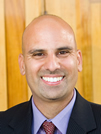Description: This workshop will draw on some of the core ideas and approaches of W. Edwards Deming, Arthur T. Denzau and Douglass C. North, Peter F. Drucker, and Robert Putnam to explore dynamic and innovative strategies for developing and bolstering organizational capacity. Participants will discuss how to apply these in ways that will help team members think and learn together in creative innovative directions.
We will begin with an exploration of Denzau and North’s Shared Mental Models (SMM) conceptual framework to explore ways organizations can improve informal as well as formal processes and structures to facilitate shared learning and understanding. Effective collective action is most often the product of having strong levels of interpersonal trust among group members. Robert Putnam refers to this as “social capital” which is a vital ingredient of any well-functioning learning-based organization. While reaching a state of harmony and consensus over processes and goals may be a desired achievement of any organization, disagreements and dissenting views in and of themselves need not be a destructive force and, if managed correctly within the right organizational environment, can be very constructive and productive. In fact, disagreements over existing ways of doing things often inspires learning and innovation and the search for alternative improvements. Participants as a group will explore ways that managers and leaders can help foster organizational environments that promote social trust-building values and processes so that such learning and innovation can be more easily facilitated.
Building SMMs and social capital among members and units within a given organization is the key to getting them to see themselves as parts of single whole. The fact that each part or process or unit may be related to one another in fact is not enough to bring about this realization. The essential question becomes how do we get distinct units or groups within an organization to share a common perception or vision and then work in their own respective capacities to achieve it? To that end, we will explore how some of the core tenets of quality management as outlined by Deming can assist us in answering this question.
Target Audience: Individual contributors, members of management, suppliers, and customers who are providing leadership in building social capital.
Organizational Issues: Participants will glean techniques and strategies for building social capital with an organizational context for the specific purpose of improving organizational function.
Objectives: At the conclusion of this workshop the attendees will gain an improved conceptual understanding of organizations and institutions as well as glean an applied understanding of social trust as the basis for inspiring organizational experimentation and learning. Participants will also glean techniques and strategies for building social capital for the specific purpose of improving organizational function.
Materials Needed: None
Cost: None
Handouts: Agenda, Slides, and article - Shared Mental Models

Biography: Ravi Roy holds a B.A. in political science from the University of California, Los Angeles (College of Honors); an M.A. in public policy from Claremont Graduate University in Claremont, California; and a Ph.D. in political science (with a concentration in comparative political economy/public policy), also from Claremont Graduate University. He was also a post-doctoral fellow at the Claremont Institute for Economic Policy Studies.
Ravi is also a research fellow at the Orfalea Center for Global and International Studies at the University of California, Santa Barbara. Prior to his CSUN appointment, he was director of the Master's Program in International Development in the School of Global Studies at RMIT University in Melbourne, Australia.
In addition, Ravi has written or co-written three books and was the lead editor on a fourth, which focused on the role of ideas and mental models in shaping people's discrete understandings of the choices available to them and how these, in turn, inform their various policy preferences.
Contact: Ravi can be reached by e-mail at ravi.roy@csun.edu for additional information about this session.
|

